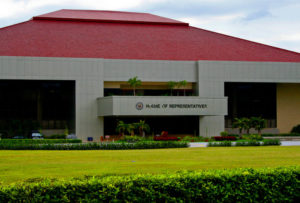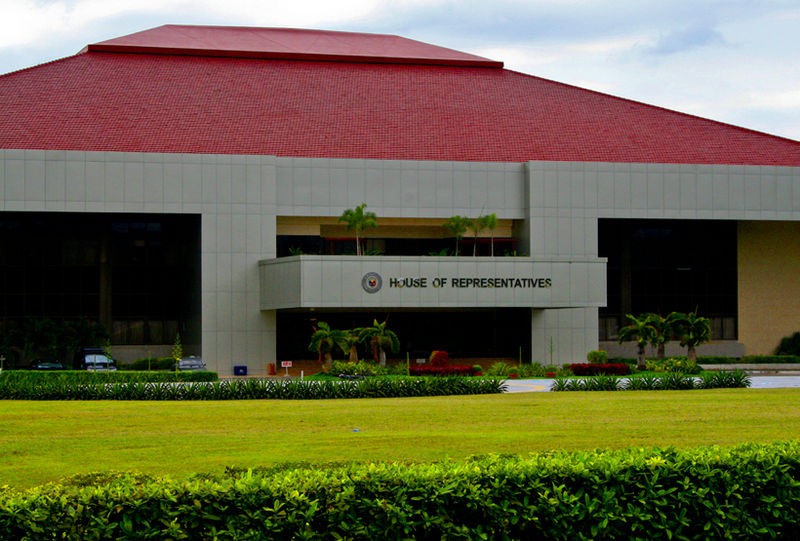
The trade and transportation departments are pushing for the urgent passage of the proposed Philippine Economic Stimulus Act of 2020 (PESA), which aims to provide immediate financial assistance to workers and businesses affected by the coronavirus (COVID-19) pandemic.
“We affirm the need to help sustain the income of workers and businesses adversely impacted by the pandemic as we gradually reopen our economy,” Trade Secretary Ramon Lopez said in a statement.
Transportation Secretary Arthur Tugade, in a separate statement, said: “As we gradually reopen the country’s economy, those hardest hit by COVID-19, like our PUV [public utility vehicle] drivers and operators, airline employees, maritime workers, and airline as well as shipping companies, must be given assistance to give them the needed room to recover their income.
The PESA bill is a consolidation of proposals by Marikina representative Stella Luz Quimbo and Albay 2nd district representative Joey Salceda and has been under several consultations and hearings under the Lower House Committees on Economic Affairs and Trade and Industry.
Under the PESA bill, the government will earmark P1.3 trillion as a post-pandemic stimulus package, including a budget of P650 billion for an expanded infrastructure program on health care, education, and food security.
The country’s transportation sector will get an allocation of P70 billion.
The proposed law will also allot: P300 billion for the National Emergency and Investment Corp., which seeks to minimize damage wrought by COVID-19 to the economy; P200 billion for wage subsidies and the grant of interest-free loans to assist micro, small and medium enterprises (MSMEs), including businesses labeled “non-essential” during the lockdown; as well as P128 billion for the Credit Mediation and Restructuring Guarantee Fund, an expanded loan program that will cover all “critically-impacted businesses” nationwide.
The bill is aimed at restoring business confidence and operations, as well as preventing business closures.
All forms of public mass transportation in areas declared under an enhanced community quarantine (ECQ) and modified enhanced community quarantine (MECQ) were suspended as part of measures to control the spread of COVID-19.
The suspension of mass transportation led to the displacement of transport wage-earners, and financial loss for transportation companies during enforcement of strict quarantine measures.
The Department of Transportation (DOTr) earlier submitted to Congress a proposal for a stimulus package that will cover assistance to the aviation sector in the form of wage subsidy for airline employees, augmentation of airline companies’ working capital, and funds for payment of fees and charges due to the different national airport authorities.
For the maritime sector, funds for the allocation of incentives and subsidies to support the passenger shipping industry and the corresponding budgetary requirements were proposed. This includes the provision of emergency lines of credit for operations funding; and for the provision for a relief on current loan obligations through a long-term credit facility with low interest and waiver of interest cost for six months.
In addition, DOTr proposed earlier the grant of assistance to the country’s road transport sector as part of the economic stimulus package. The proposal intends to assist the operation of PUVs; mitigate income loss of PUV drivers and operators; and provide fuel subsidy for PUV operators equivalent to more or less 30% of their actual fuel consumption during the pre-ECQ period.
The proposed stimulus package also intends to provide transport operators with new loan facilities to cover expenses for fuel, manpower, garage lease and other operating and capital expenses. This includes intervention for the restructuring of existing loans of bus operators with private banks for the modernization of their fleet during the duration of the general community quarantine (GCQ) period.
“Businesses have already lost a significant amount of income due to the challenges in logistics brought about by the ECQ,” Lopez said.
“As we work towards the gradual lifting of the quarantine, more businesses will be able to operate, but at lower capacities due to limited capital resources that dwindled during the quarantine period. There are also strict health measures that are being imposed and the firms would need working capital loans,” he explained.
“At a very critical time such as this, we must not only ensure a safe working environment for our citizens, but also continue to find means to support, and more importantly save the jobs of those adversely affected to facilitate faster economic recovery.
“By providing working capital assistance, technical and entrepreneurial education, and financial management, among others, we will be able to protect Filipinos by ensuring businesses will continue operating post-lockdown and help turn the tide for businesses and workers affected by the health crisis,” he added.





